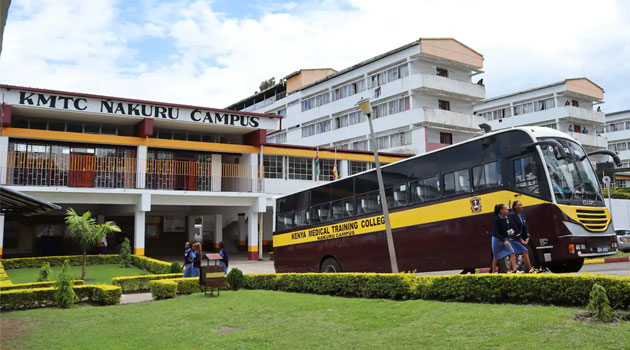The Kenya Medical Training College (KMTC) has sent 13,000 transcripts to its campuses nationwide for students who completed their final qualifying examinations between June and July 2025, aiming to fast-track graduate employment both locally and internationally.
This large-scale dispatch is part of the College’s ongoing efforts to ensure graduates receive their academic documents promptly and are ready to compete in the job market.
KMTC, Kenya’s largest health training institution, has in recent years faced rising demand from both graduates and employers for faster issuance of transcripts and certificates.
In response, the College has implemented reforms including digitization of academic records, automation of verification processes, and decentralization of services to regional campuses.
“Our reforms are designed to ensure graduates do not miss opportunities,” said KMTC Chief Executive Officer, Dr. Kelly Oluoch. He explained that delays in verification or issuance can affect job placements, particularly for graduates seeking positions abroad.
“With automation, students can now verify transcripts online, and with decentralization, they can collect documents at their campuses three weeks after completing exams,” he added.
The College has also scaled up the Transcript Mashinani initiative, bringing services closer to graduates during events such as county career fairs, health exhibitions, and national celebrations, allowing transcripts to be issued on the spot. These measures reduce travel and postal delays while ensuring graduates access their documents quickly.
Demand for KMTC graduates continues to grow internationally, with countries across Africa, the Middle East, and Europe recruiting Kenyan health workers to fill staffing gaps.
Recruitment agencies frequently request authenticated transcripts to process work permits and placements, making timely issuance critical.
By accelerating transcript dispatch, KMTC seeks to enhance the employability of its graduates and strengthen Kenya’s presence in the global health workforce. The College, with over 70 campuses and more than 50,000 students annually, continues to produce nurses, clinical officers, and specialists who form the backbone of the country’s health sector.
“These reforms are part of a broader modernization agenda,” Dr. Oluoch said. “We are building a future-ready institution where processes are efficient, transparent, and responsive to the realities of the global job market.”

